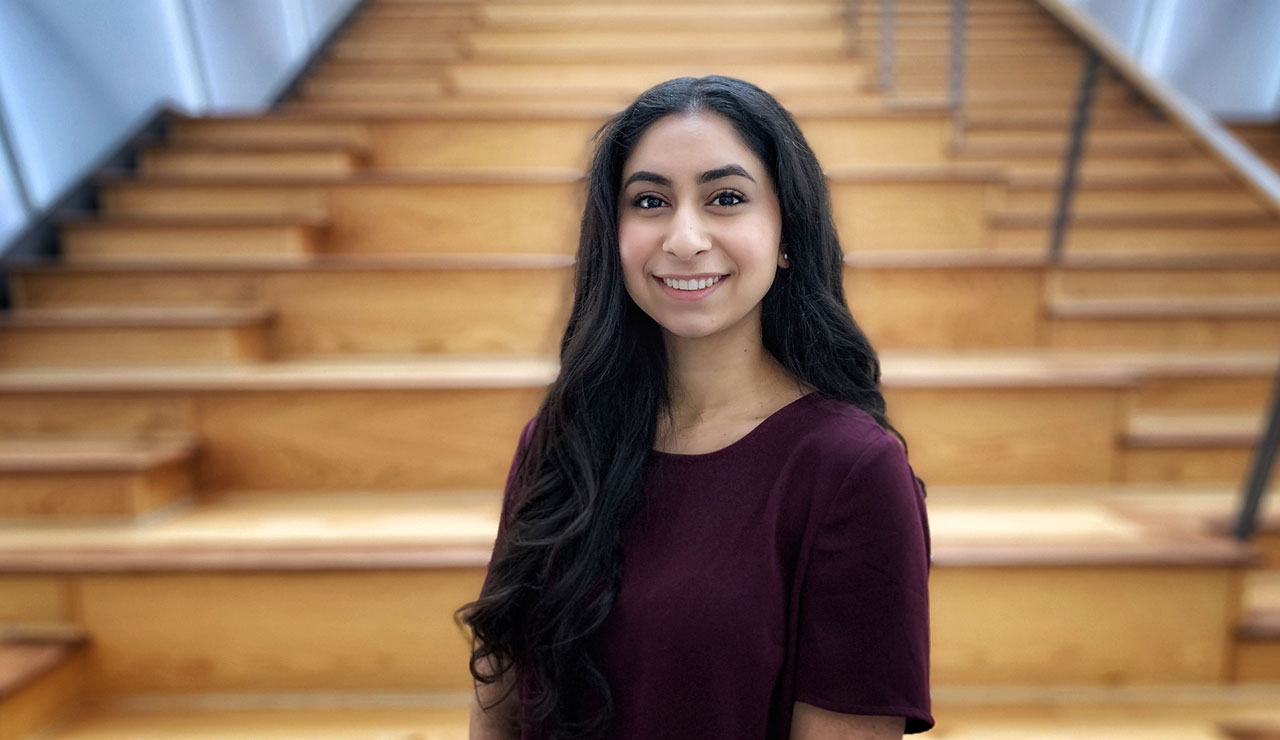Simran Pherwani, '21 MSc

Student: Simran Pherwani, MSc
Program: M.Sc.
Supervisors: Gary Lopaschuk
What led you to graduate studies in the Department of Pediatrics at the University of Alberta?
I have always immensely enjoyed working with children and have volunteered as a unit leader with the Girl Guides of Canada Program for the past seven years. This led me to pursue a clinical research project at the Stollery Children’s Hospital in pediatric hematology during high school and early in my undergrad degree, and sparked my passion for children’s health research. Curious about the mechanisms underlying hematologic and cardiac disorders, I joined Gary Lopaschuk’s lab where I was a summer student for three years working on various projects involving congenital and metabolic cardiac disorders in infants. I had an excellent experience, and so I combined my passions to pursue graduate studies in pediatric health.
What was the focus of your research?
We examined the relationship between providing an extra source of energy—ketones—to the failing energy-starved heart and heart function. We found that producing this extra source of energy can be beneficial for heart failure treatment, and does not adversely affect fuel use in heart failure.
How did the Department of Pediatrics prepare you for the next step in your career?
I was exposed to an incredible amount of career development, skill-building, and networking events in the department as a graduate student. Most of my graduate school was during the pandemic, but the department ensured there was never a shortage of moments to develop professional, communication, and transferable skills and gain mentorship from others. We also had many opportunities to share our research and gain feedback. There were always individuals I could go to for help or guidance, and everyone made me feel extremely welcome and supported.
What were some of the biggest challenges you faced?
Most difficult was that my animal work was affected by the COVID pandemic and I had to postpone and move work around on short notice. We had two major research lab shut-downs where we had to stop all in-person research for an unspecified period, so it was quite terrifying not knowing what research work I could continue or do at what time. However, my supervisor was very supportive and helped me a tremendous amount. Dr. Lopaschuk gave me the opportunity to write multiple review papers and be involved with other projects/activities during this time.
Do you have any tips for other graduate students?
My biggest tips are to always make connections with everyone, and to take advantage of every opportunity. You never know if one small conversation with another grad student can turn into a research project or event collaboration, or if a short interaction with a researcher can turn into a great mentorship experience.
Most importantly, make sure to take care of yourself and focus on self-care. Grad school can be extremely tough, but you shouldn’t lose sight of your passions and things you enjoy outside of research. Focus on your happiness, since that is when you can truly put 100 per cent into your work.
What will you miss about your time here?
I will miss the people the most. I gained many lifelong friends and mentors. The Department of Pediatrics is super welcoming, inclusive, and definitely throws the best celebrations (the pre-pandemic Winter Celebrations were the best!!). Everyone in the department is caring, extremely friendly, and there to have conversations about anything.
What are your future goals?
My passion and fascination with research has continually increased, and I want research to be a significant part of my future career. Children’s health is something I am very passionate about and I hope to eventually work as a clinician scientist. I started medical school at the Cumming School of Medicine at the University of Calgary in July.